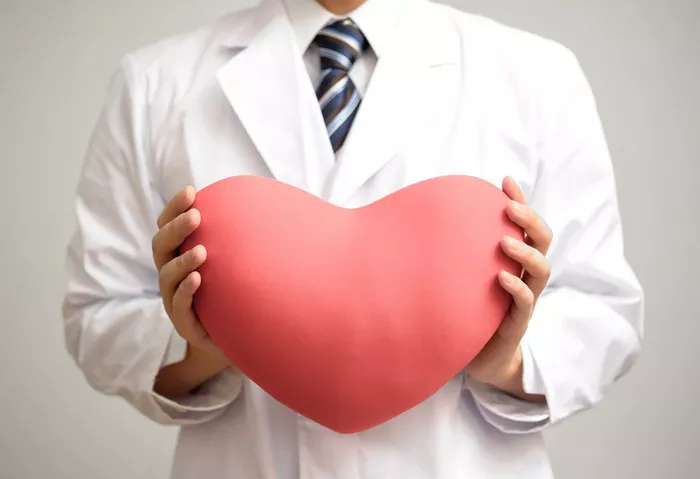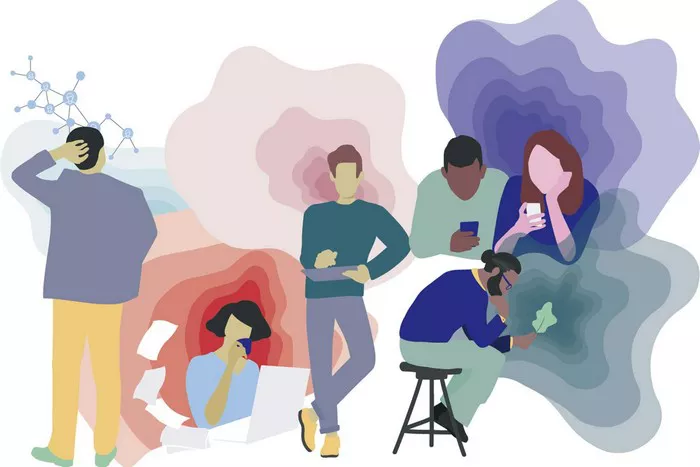In recent years, the understanding of mental health has broadened significantly, encompassing a wide array of conditions that impact various aspects of human behavior. One such phenomenon that has gained attention is hypersexuality, a condition characterized by excessive or compulsive engagement in sexual activity. While hypersexuality can manifest in individuals without any underlying mental illness, it is often associated with certain psychiatric disorders. In this comprehensive exploration, we delve into the mental illnesses that commonly cause hypersexuality, shedding light on the intricate interplay between psychological factors and sexual behavior.
I. Defining Hypersexuality
Before delving into the specific mental illnesses associated with hypersexuality, it is crucial to establish a clear understanding of the concept itself. Hypersexuality, also known as compulsive sexual behavior or sexual addiction, refers to a state in which an individual experiences intense and uncontrollable urges, thoughts, or behaviors related to sex. This condition often leads to a preoccupation with sexual fantasies or activities, resulting in significant distress or impairment in various areas of life, including personal relationships, work, and social functioning.
II. Bipolar Disorder and Hypersexuality
One of the most well-documented psychiatric disorders associated with hypersexuality is bipolar disorder. Bipolar disorder is characterized by recurrent episodes of mood disturbances, including manic or hypomanic episodes marked by elevated mood, increased energy, and impulsivity. During manic or hypomanic episodes, individuals with bipolar disorder may exhibit heightened libido and engage in risky sexual behaviors, such as promiscuity, infidelity, or excessive masturbation. The intense euphoria and decreased inhibitions characteristic of manic episodes can lead individuals to seek out sexual gratification compulsively, often without considering the potential consequences.
III. Borderline Personality Disorder and Hypersexuality
Borderline personality disorder (BPD) is another psychiatric condition associated with hypersexuality. Individuals with BPD often struggle with unstable self-image, intense emotions, and difficulties in interpersonal relationships. Hypersexuality in BPD may stem from a variety of factors, including a desire for validation, attempts to alleviate feelings of emptiness or boredom, or efforts to establish a sense of intimacy or connection with others. Engaging in risky sexual behaviors can serve as a maladaptive coping mechanism for individuals with BPD, offering temporary relief from emotional distress or a means of seeking validation and approval from others.
IV. Substance Use Disorders and Hypersexuality
Substance use disorders, including addiction to drugs or alcohol, frequently co-occur with hypersexuality. Substance intoxication can lower inhibitions, impair judgment, and increase impulsivity, leading individuals to engage in risky sexual behaviors they might otherwise avoid. Moreover, substance use may serve as a means of self-medication for underlying psychological distress, including feelings of anxiety, depression, or low self-esteem, all of which can contribute to hypersexuality. The combination of substance abuse and hypersexuality can create a cycle of reinforcement, wherein the use of substances fuels compulsive sexual behavior, and vice versa.
V. Obsessive-Compulsive Disorder and Hypersexuality
Obsessive-compulsive disorder (OCD) is characterized by intrusive thoughts (obsessions) and repetitive behaviors (compulsions) aimed at reducing anxiety or distress. While OCD is commonly associated with rituals such as handwashing or checking, it can also manifest in the form of sexual obsessions and compulsions. Individuals with OCD may experience intrusive sexual thoughts or images that provoke significant distress, leading them to engage in compulsive behaviors such as excessive masturbation, seeking out pornography, or engaging in repetitive sexual acts. Hypersexuality in the context of OCD is often driven by an intense need to alleviate feelings of anxiety or to prevent imagined negative outcomes associated with sexual thoughts or urges.
VI. Schizophrenia and Hypersexuality
Schizophrenia is a severe mental disorder characterized by disturbances in thought, perception, and behavior. While hypersexuality is less commonly observed in schizophrenia compared to other psychiatric disorders, it can still occur as a symptom of the illness or as a side effect of antipsychotic medications used to treat it. In some cases, individuals with schizophrenia may experience delusions or hallucinations with sexual themes, leading to inappropriate or socially unacceptable sexual behaviors. Additionally, certain antipsychotic medications, particularly dopamine antagonists, can cause sexual side effects such as hypersexuality or decreased sexual inhibition.
VII. Trauma and Hypersexuality
Exposure to trauma, such as childhood sexual abuse or other forms of interpersonal violence, can contribute to the development of hypersexuality in some individuals. Trauma survivors may use sex as a means of coping with emotional pain, reclaiming a sense of control over their bodies, or seeking intimacy and connection in the aftermath of traumatic experiences. However, hypersexuality stemming from trauma can also be a manifestation of maladaptive coping mechanisms and unresolved psychological distress. Therapeutic interventions aimed at addressing trauma-related issues and promoting healthy coping strategies are essential in addressing hypersexuality in this context.
VIII. Conclusion
Hypersexuality is a complex phenomenon that can arise in the context of various mental illnesses, each characterized by its unique underlying mechanisms and contributing factors. Understanding the relationship between hypersexuality and psychiatric disorders is crucial for accurate diagnosis, effective treatment planning, and holistic management of individuals struggling with compulsive sexual behavior. By addressing underlying psychological issues, providing appropriate therapeutic interventions, and promoting healthy coping strategies, mental health professionals can help individuals regain control over their sexual behaviors and improve their overall well-being. Continued research into the neurobiological and psychosocial aspects of hypersexuality is essential for advancing our understanding and enhancing treatment approaches for this challenging condition.
[inline_related_posts title=”You Might Be Interested In” title_align=”left” style=”list” number=”6″ align=”none” ids=”5935,5933,5921″ by=”categories” orderby=”rand” order=”DESC” hide_thumb=”no” thumb_right=”no” views=”no” date=”yes” grid_columns=”2″ post_type=”” tax=””]
































